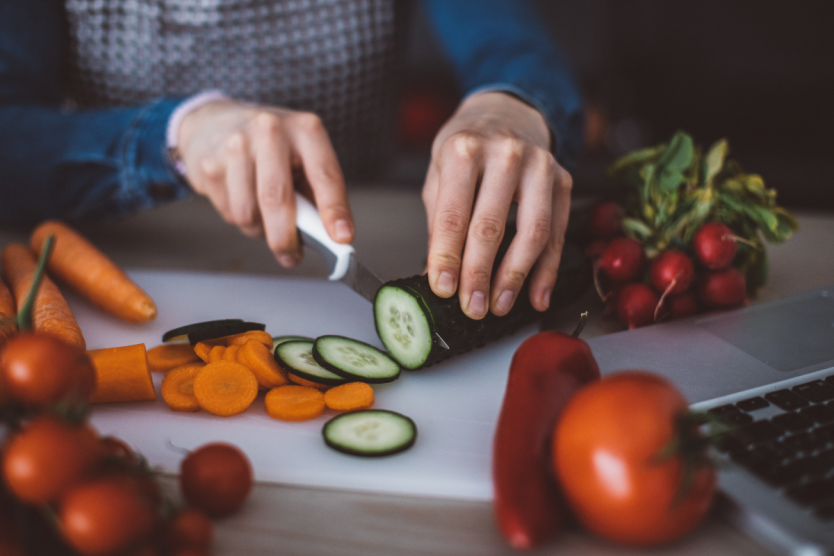We all know that a healthy diet is part of maintaining our overall well-being.
If you have been diagnosed with a specific condition, however, you may wonder whether an explicit diet is helpful for that condition. For instance, what foods prevent polyps? Let’s look at uterine polyps and whether what you eat makes a difference to getting or managing polyps.
What are Uterine Polyps
These growths attach to the inner wall of the uterus and expand into the uterus.1 Polyps attach to the endometrium (uterus lining) by a thin stalk or a broad base and extend inward into the uterus.2 They can be extremely small, like a seed, to the size of a golf ball or larger. Women can have one or many, and sometimes they slip through the opening of the uterus into the vagina.1
Uterine polyps are caused by an overgrowth of cells in the lining of the uterus, and are sometimes called endometrial polyps. While they are typically noncancerous or benign, they can be precancerous, later turning into cancer, and sometimes they are cancerous.1 They may cause problems with periods or fertility if left untreated.2
These polyps are most common in women going through menopause, or post-menopause, but younger women may also get them. Here are symptoms to watch for:1
- vaginal bleeding after menopause
- bleeding between periods
- frequent, unpredictable periods
- very heavy periods
- infertility
What Foods Prevent Polyps
When we hear about polyps and diet, the most common polyps that come to mind are colon polyps. The guidelines aren’t as specific for uterine polyps. But there are certain choices you can make to help with overall vaginal and uterine health, which in turn may help prevent polyps.
Doctors suggest that probiotics, prebiotics, and fermented food and beverages are great for your vaginal health, helping to improve and regulate the vagina’s acidity levels.3 Hormones play a role too, since uterine polyps are estrogen-sensitive—growing in response to estrogen in the body.1
Here are foods that are good to add to your diet to improve your overall uterine health:3
- nuts and seeds
- leafy vegetables
- fresh fruits
- lemons
- whole grains
In contrast, here are foods that may be bad for your uterine health, and should be limited or avoided:3
- trans fat
- gluten
- alcohol
- caffeine
It’s a good idea for your overall health to limit or avoid saturated fats such as those found in red meat, whole dairy, fried foods and processed foods. Losing weight may also help, since being overweight or obese is a risk factor for developing uterine polyps.1
See a Doctor
If you notice symptoms that could be a sign of uterine polyps, most commonly abnormal vaginal bleeding, see your health care provider promptly. In particular, see a doctor if you have vaginal bleeding or spotting after menopause, or when you don’t have your period, or bleeding during your period that’s especially heavy or unpredictable.2 Having a regular gynecological checkup can allow your provider to catch polyps early.2 Use our Physician Finder to find a doctor near you with expertise in women’s health, who can help with your health concerns.
















